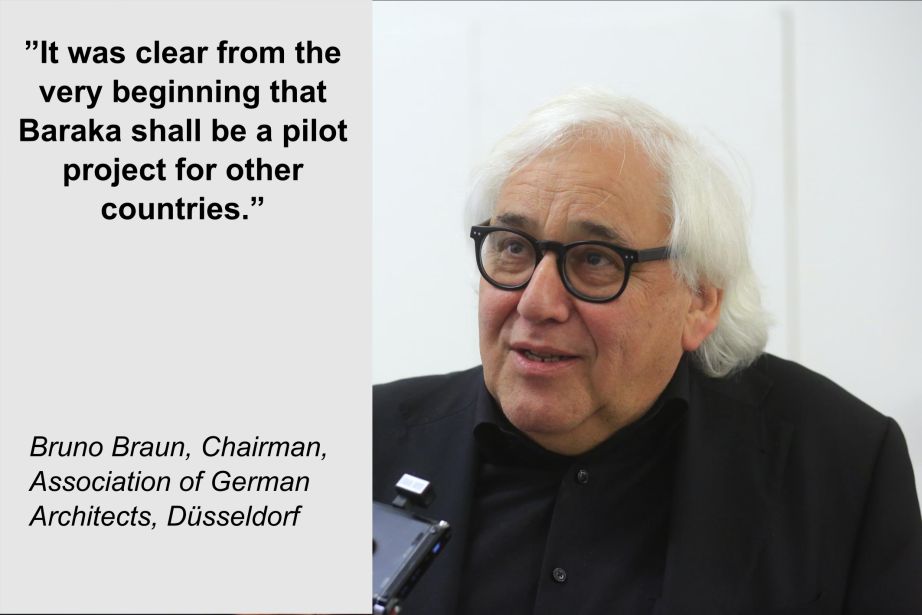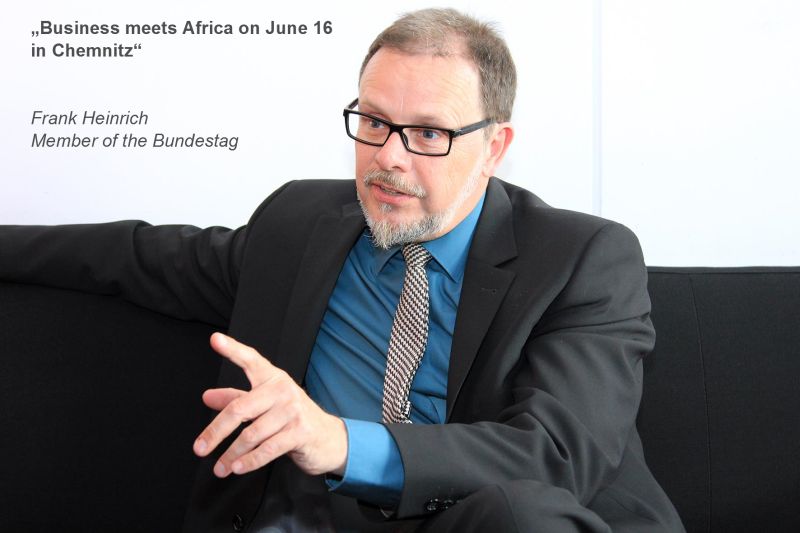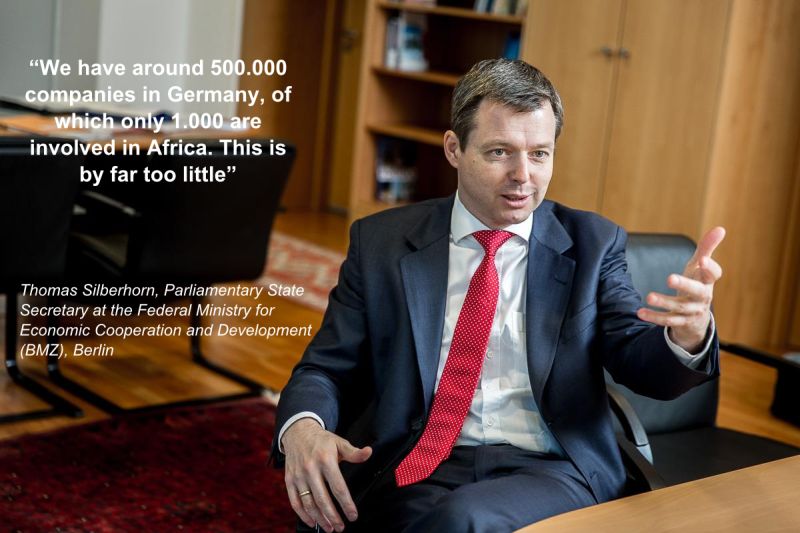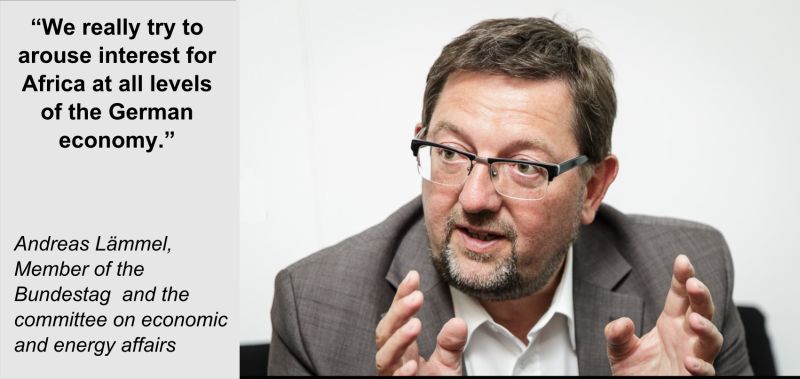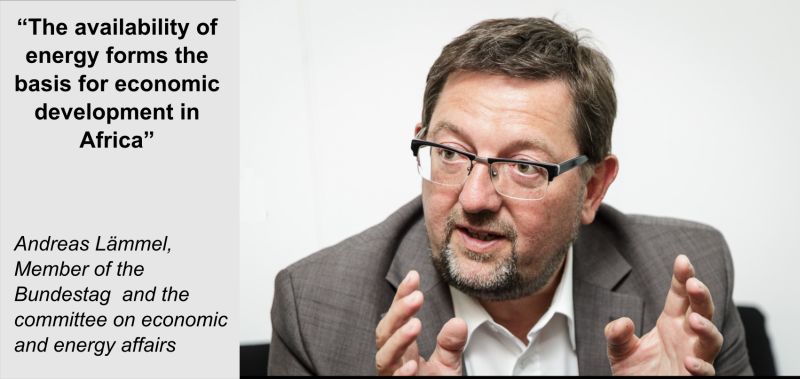English articles
Interview with Bruno Braun, Chairman, Association of German Architects, Düsseldorf
The Baraka Refugee Project in Dakar: unique in the world!
Refugees from the neighbouring countries of Senegal live in the city of Dakar in a slum area called Baraka. Now, a new urban district shall emerge from this slum. Bruno Braun, Chairman of BDA, the Association of German Architects in Düsseldorf, is involved in this project. On the occasion of the award ceremony and the exhibition of this project, we conducted an interview with him.
Interview with Mr. Michael Wehinger, Head of the Department West Africa at the KfW Group, Frankfurt am Main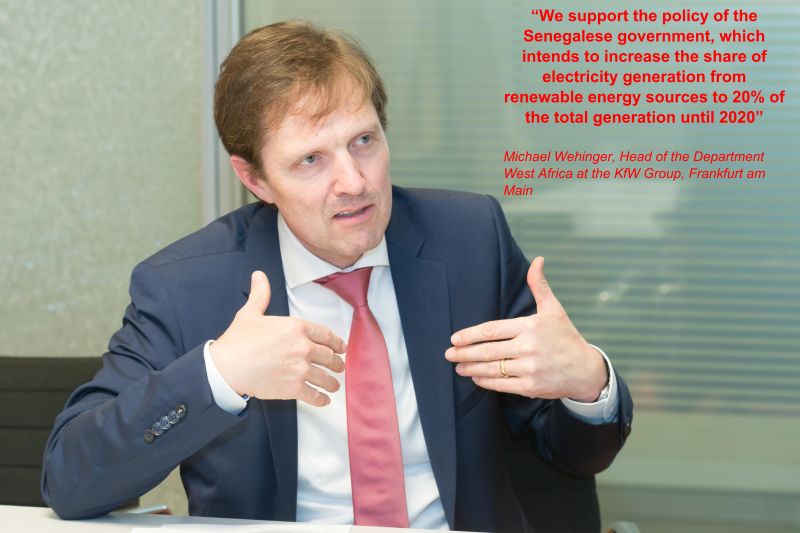
SenGermany: Mr. Wehinger, since when have you been responsible for West Africa at KfW?
Wehinger: I have been responsible for West Africa since early 2015. Previously already, I had numerous points of contact with Africa within the scope of my professional activity in the business segment 'KfW development bank' extending over more than twenty years now.
Interview with Frank Heinrich, Member of the Bundestag
SenGermany: According to your curriculum vitae you come from Freiburg. How did you get from Freiburg to Chemnitz?
Heinrich: Because of my professional career. I studied social pedagogy in Freiburg. Then I decided together with my wife to work full-time as a pastor at the Salvation Army. We completed our training course in Basel and were thereafter sent for our first job to Chemnitz. That is the reason why we ended up in Saxony.
Interview with Thomas Silberhorn, Parliamentary State Secretary at the Federal Ministry for Economic Cooperation and Development (BMZ), Berlin
On 13 January 2016, we spoke with State Secretary Thomas Silberhorn about development cooperation between the Federal Republic of Germany and Senegal, about energy as priority issue, but also about the topics Decentralisation and Food Policy.
2nd part of the interview with the Member of the Bundestag Andreas Lämmel and member of the committee on economic and energy affairs
You speak of a Berlin company with German funding. But there is also the German Society for International Cooperation (GIZ) with agencies in many African countries and projects in the field of energy. Can attempts be made to also offer such solutions through GIZ? In the end, German subsidies are concerned here .
1st part of the interview with the Member of the Bundestag Andreas Lämmel and member of the committee on economic and energy affairs
Mr. Lämmel, decarbonisation was announced on 8 June 2015. This means that the energy supply must, until 2100, do without coal, natural gas and crude oil. And when this happens, you inevitably open up a big market for renewable energies. What kind of preparation is made in the Bundestag?






